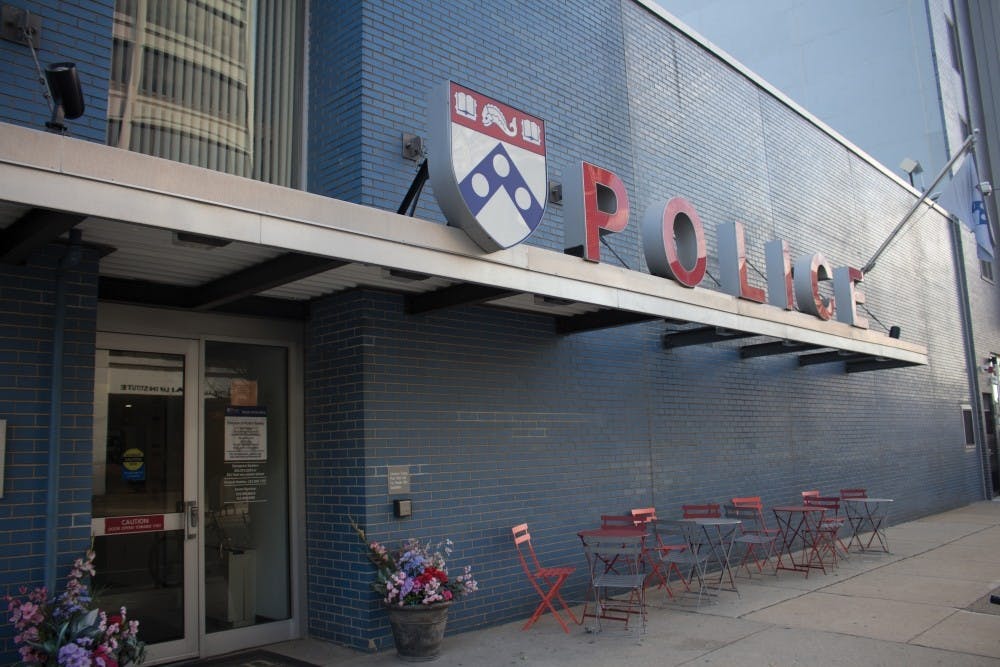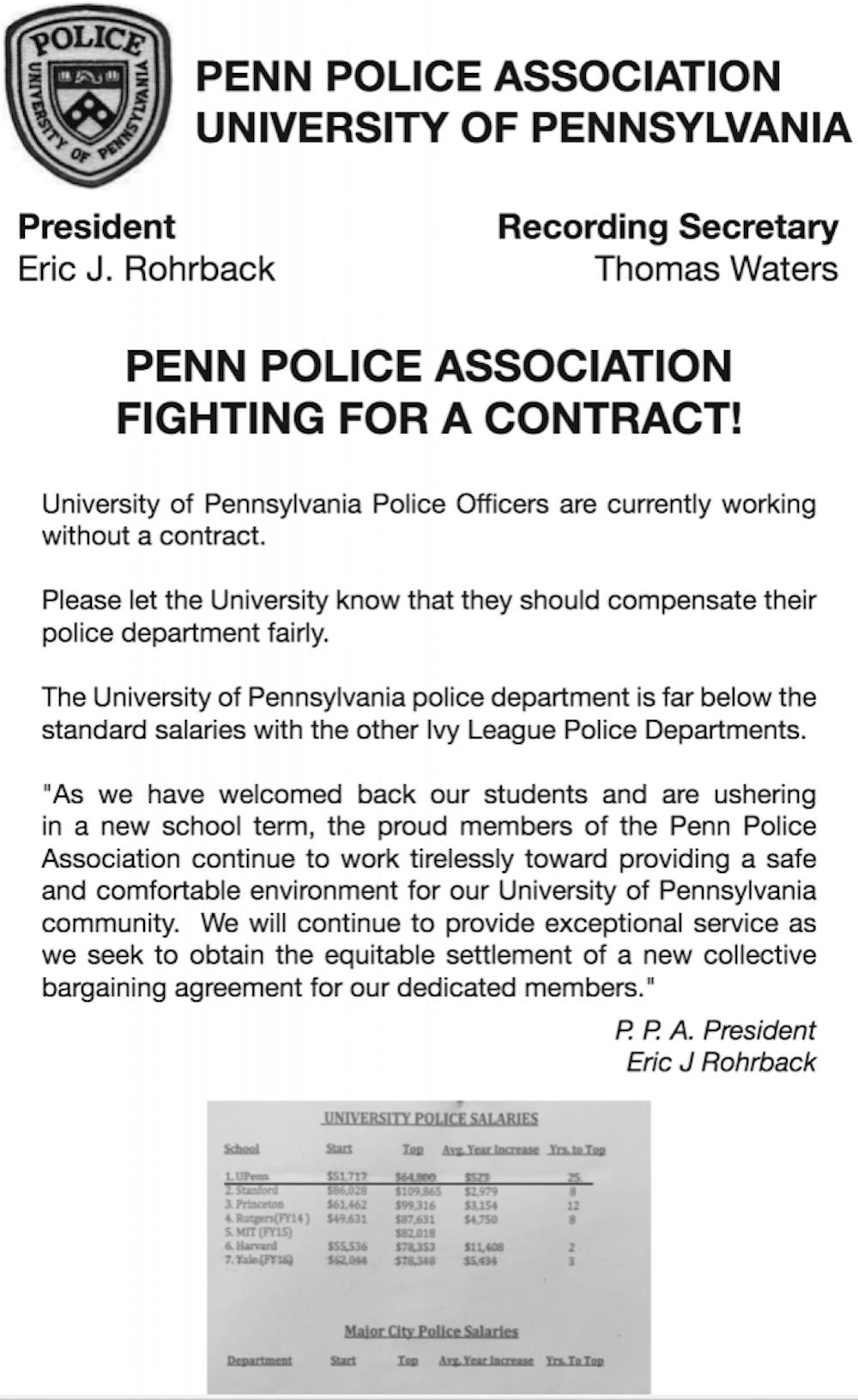
After more than six and half months of working without a contract, the stalemate in negotiations between members of the Penn Police Association and Division of Public Safety has ended.
The new terms of the three-year contract, which Penn introduced to PPA leaders on Feb. 27, will provide a pay increase for officers and changes in officer pension plans, and includes new language allowing officers to review body camera footage during disciplinary hearings.
Craig Carnaroli, Penn's executive vice president, publicly announced the new terms on April 4 at DPS' annual commendation ceremony.
“It was a long contract process, probably longer than anyone would’ve liked, but I’d like to thank the PPA for accepting the agreement and your patience in that process,” Carnaroli said. “These are always not the easiest things or the funnest things to do, but we got through and we got through together.”
Officers with the union had been working without a contract since July 31, 2017.
After the University proposed the new terms in late February, PPA members voted in favor of the new agreement – 59 voting for and 14 against – at its monthly meeting on March 1. PPA President Eric Rohrback said the PPA signed a memorandum of the agreement indicating that officers would sign the new contract once drafted by the University as long as the agreed-upon terms remained the same.
DPS comprises 178 personnel, nearly 120 of whom are sworn Penn Police officers. Of those, 87 are members of the Penn Police Association — nearly three quarters of the force.
The remaining 30 non-unionized officers are primarily composed of higher ranking, or “A1,” officers such as lieutenants and captains whose terms of employment do not allow them to formally unionize.
Since the new contract was supposed to go into effect on Aug. 1, Rohrback indicated that the ratified clauses will be retroactively applied to the negotiation period.
During negotiations, the University initially offered a 3 percent base increase over the course of three years, but Rohrback said the union asked for a larger pay increase. Under the agreed-upon terms, officer salaries will now increase at 3.25 percent increments over the next three years – reaching a total pay increase of 9.75 percent, Rohrback told The Daily Pennsylvanian.
DPS declined to confirm or deny any terms of the agreement, writing that "[w]e do not discuss personnel issues," according to an emailed statement to the DP from Stacy Lutner Ritchey, associate director of operations and external affairs for DPS.
Despite the increase in pay, Penn Police salaries still remain below the rates of both the Philadelphia Police Department and similar universities, according to data provided by the PPA.

Advertisement taken out by Penn Police in The Daily Pennsylvanian
"We'd love to be up there with the other departments, but we got to whittle away at it," Rohrback remarked. "Rome wasn't built in a day."
The terms were retroactively applied back to Aug. 1, 2017, so that officers received a pay stipend with the new salary rate applied.
It was "the largest retro[active] payment in [U]niversity history," Rohrback wrote in a message.
One of the key negotiating points, according to Rohrback, was equipping Penn Police with body cameras and adding language allowing officers to view their camera footage during disciplinary, criminal, and civil hearings.
Rohrback said DPS had purchased, but had to equip all officers with body cameras at the time of signing.
“The DPS Penn Police Department have been researching the implementation of a body camera system for some time," Vice President for the Division of Public Safety Maureen Rush said in a statement. "Following a successful pilot with the cameras, we will be deploying body cameras for officer use soon. We are developing the directives which will govern the specific use of these body cameras, including access to review footage and other considerations. We will base these directives on best law enforcement practices.”
In 2015, after the Philadelphia Police Department launched a pilot program for officers to wear body cameras while on duty, Penn students called on DPS to implement the same policy for Penn Police officers.
The new terms also affected officer pensions. Monthly pension checks will be based off of the salaries of the final three years of an officer's service, rather than the last five, as stipulated in the previous contract.
"With what we got with the body-cam language and the pay increase, [members] are relatively happy now," Rohrback said. "Morale is up a little bit."
The Daily Pennsylvanian is an independent, student-run newspaper. Please consider making a donation to support the coverage that shapes the University. Your generosity ensures a future of strong journalism at Penn.
Donate




